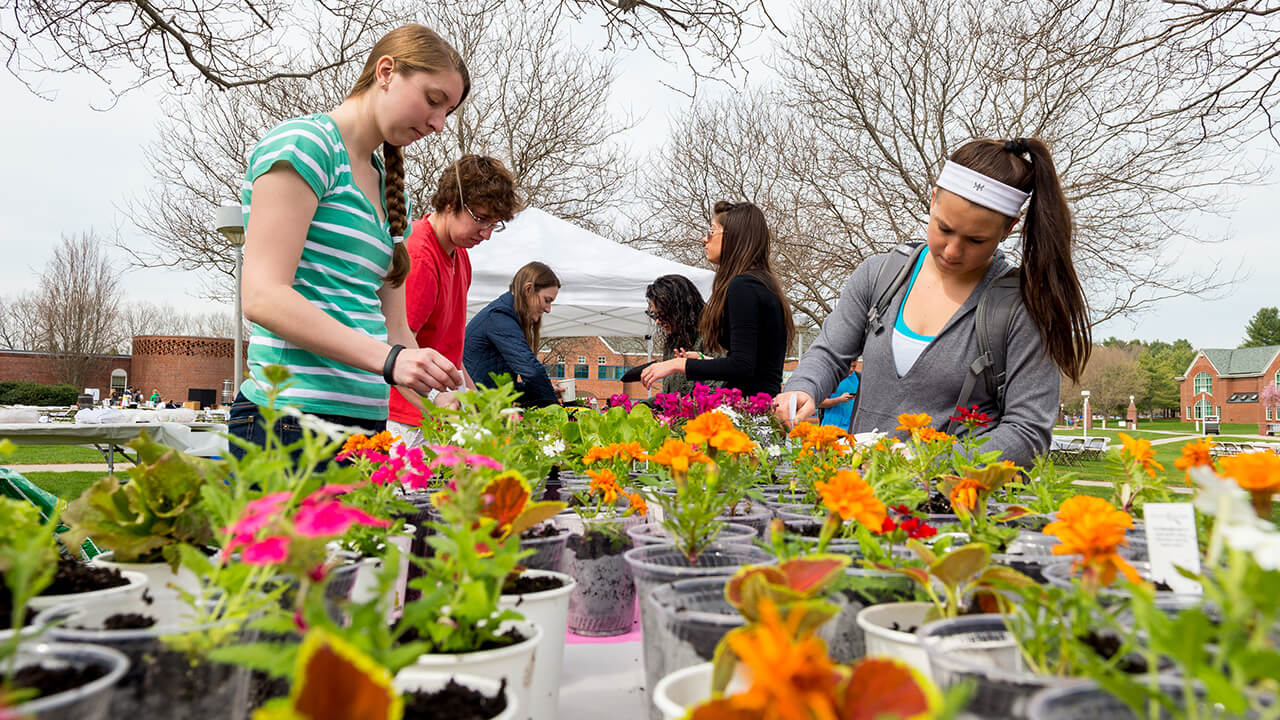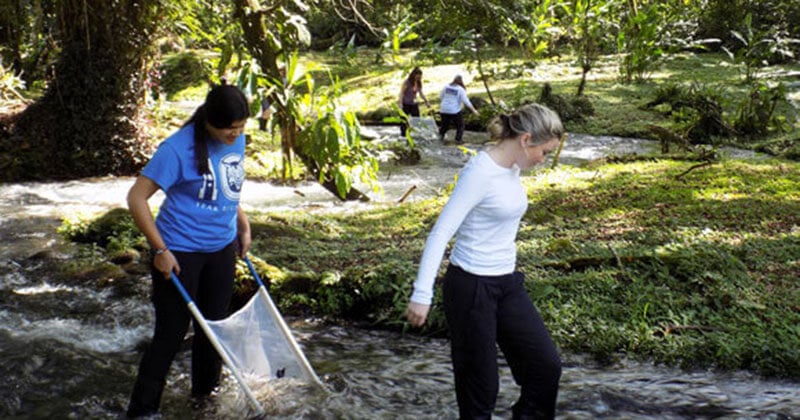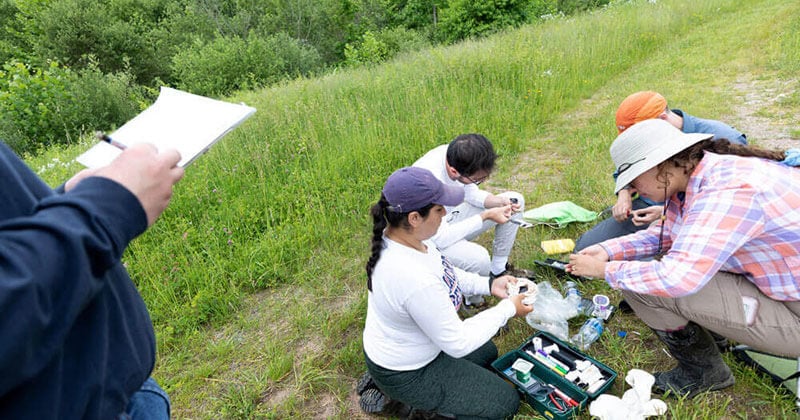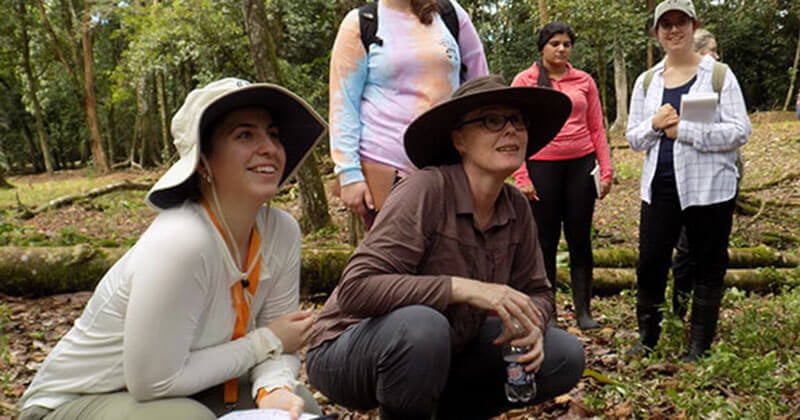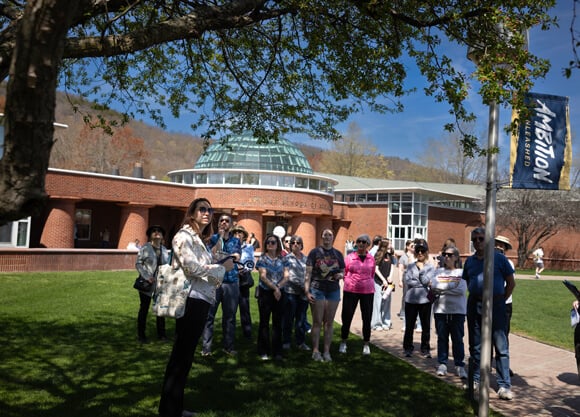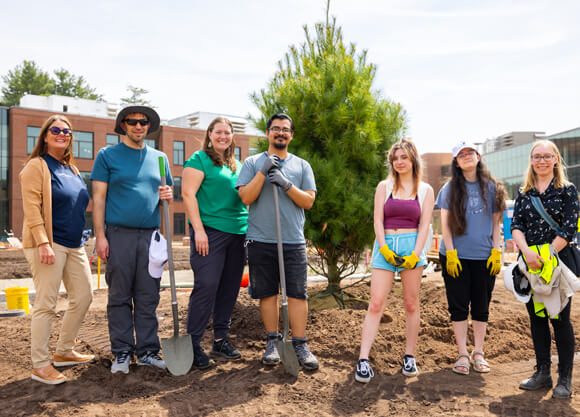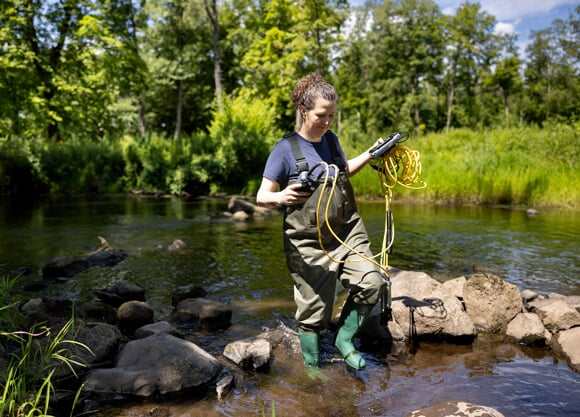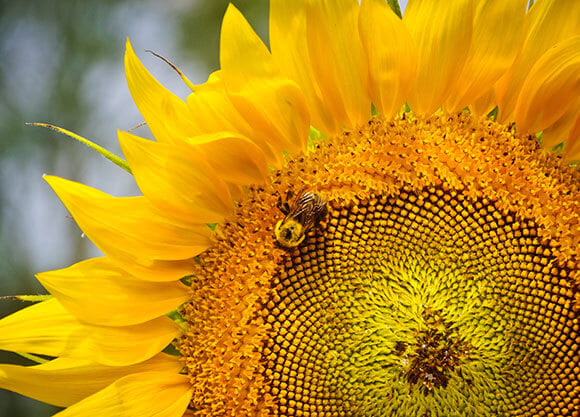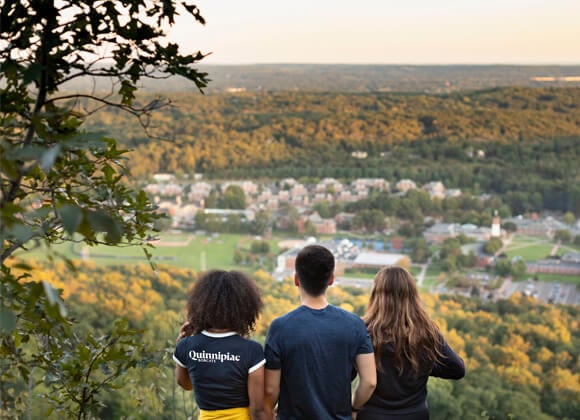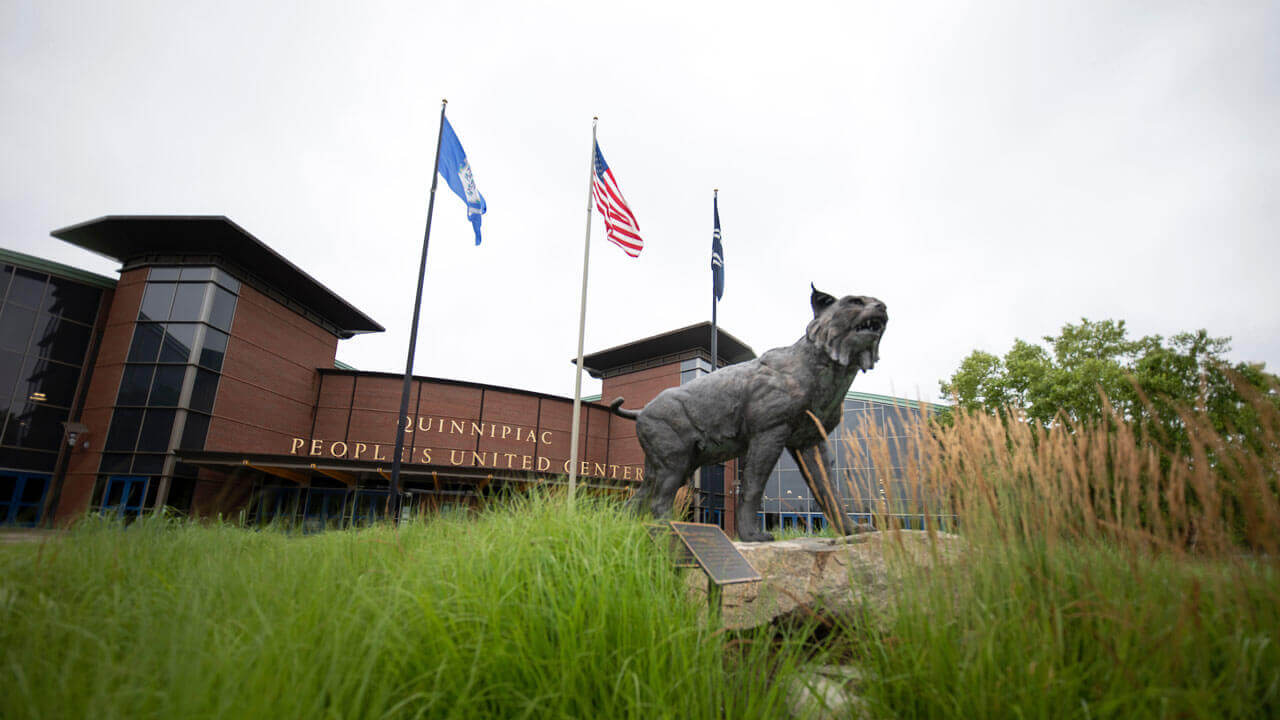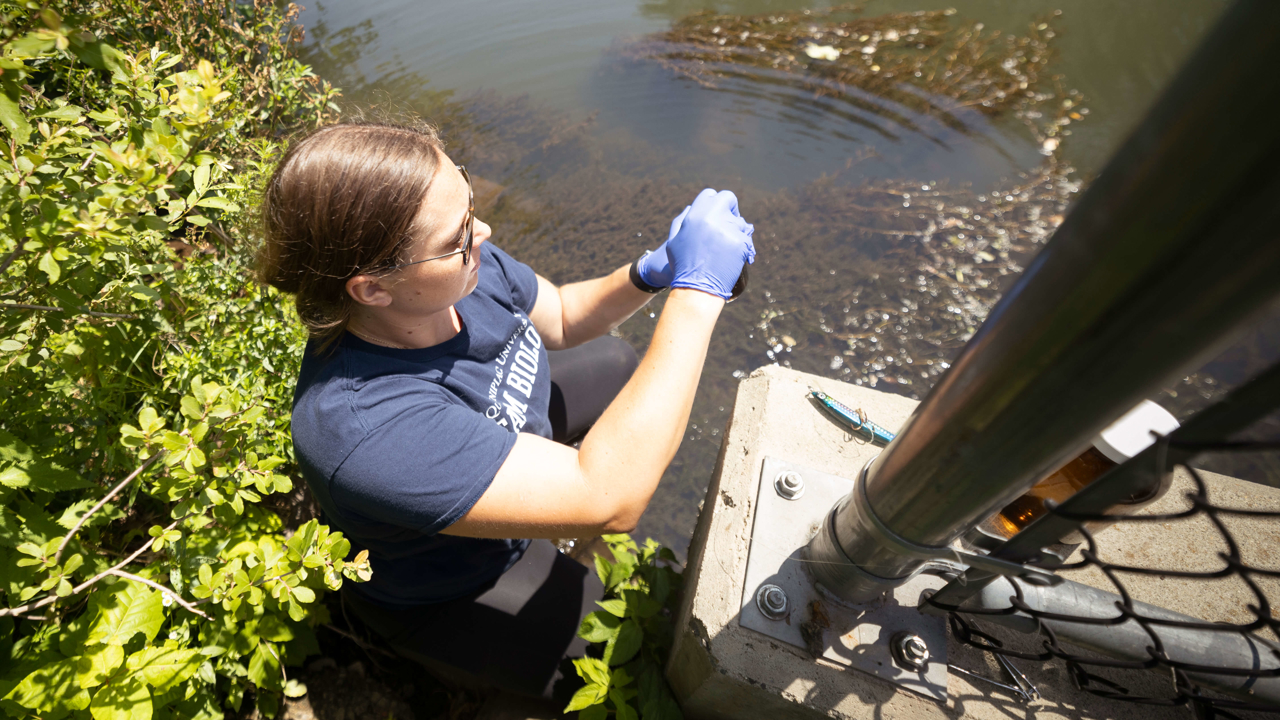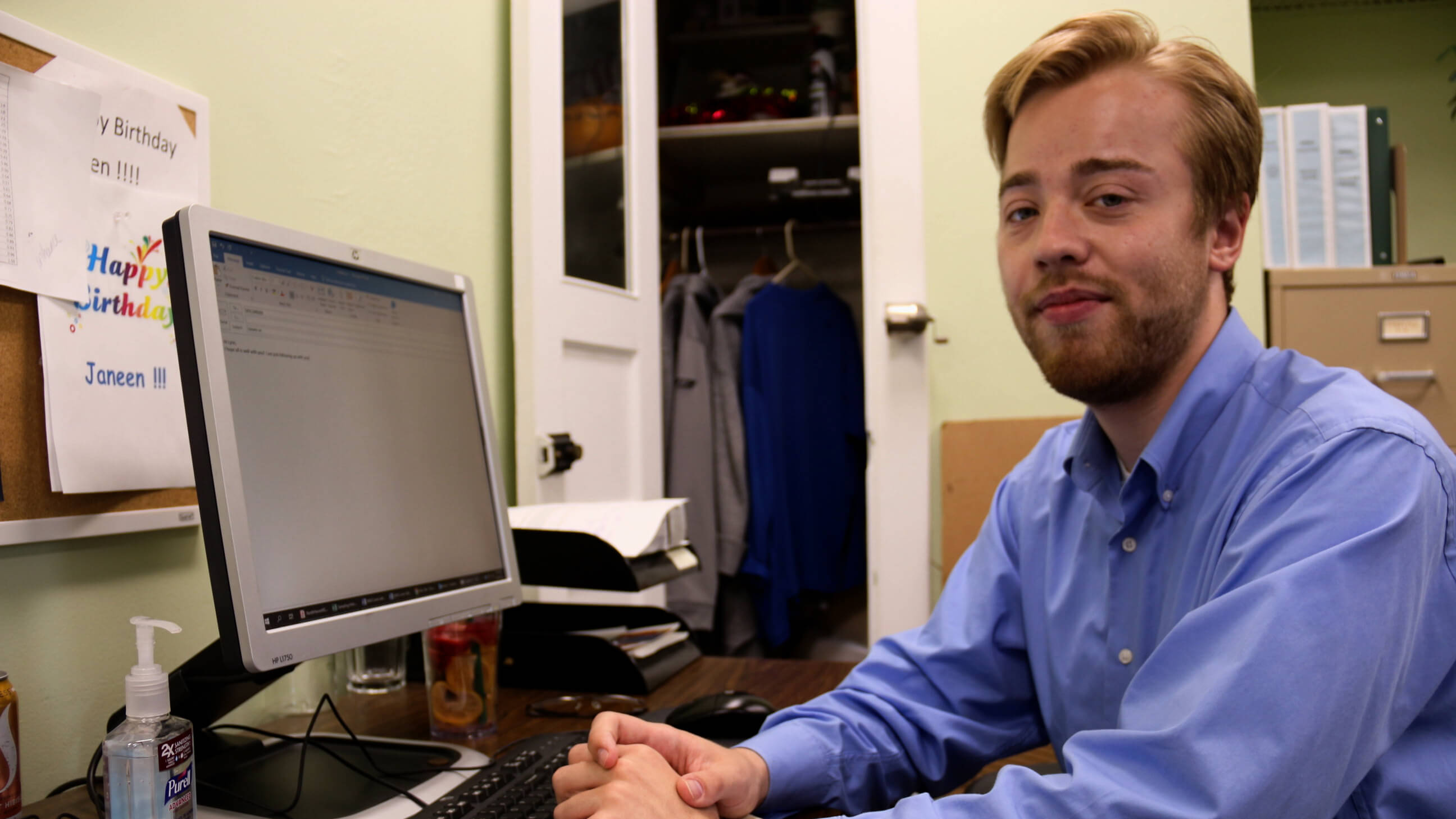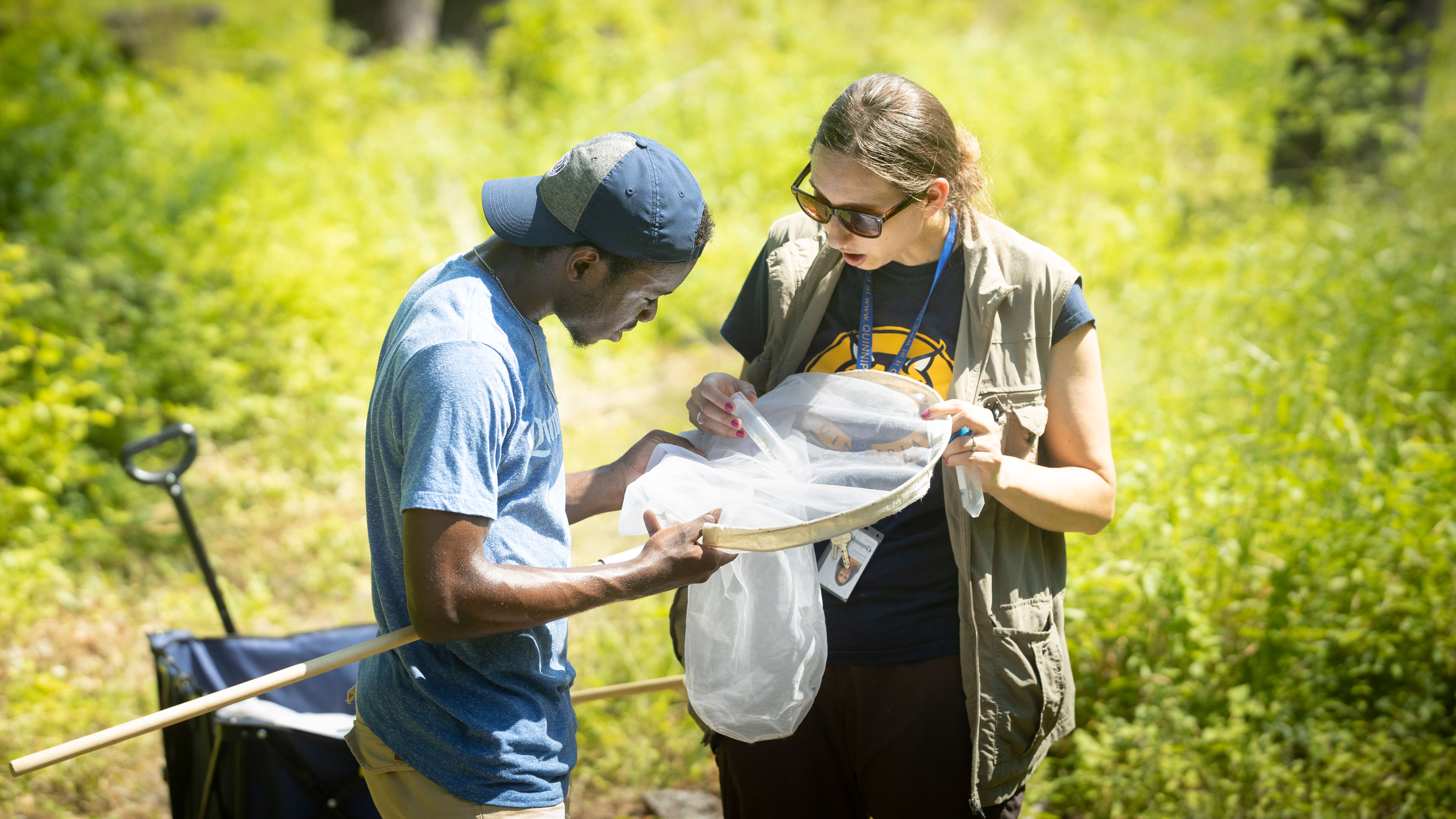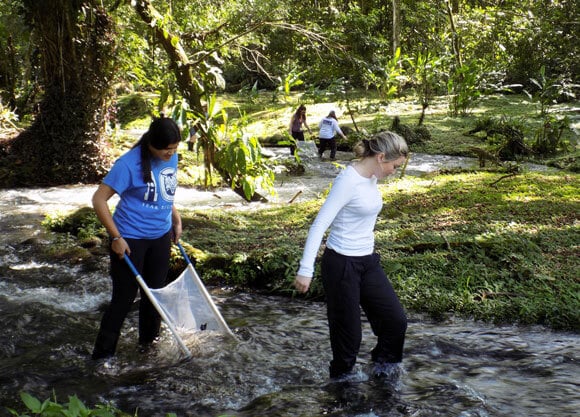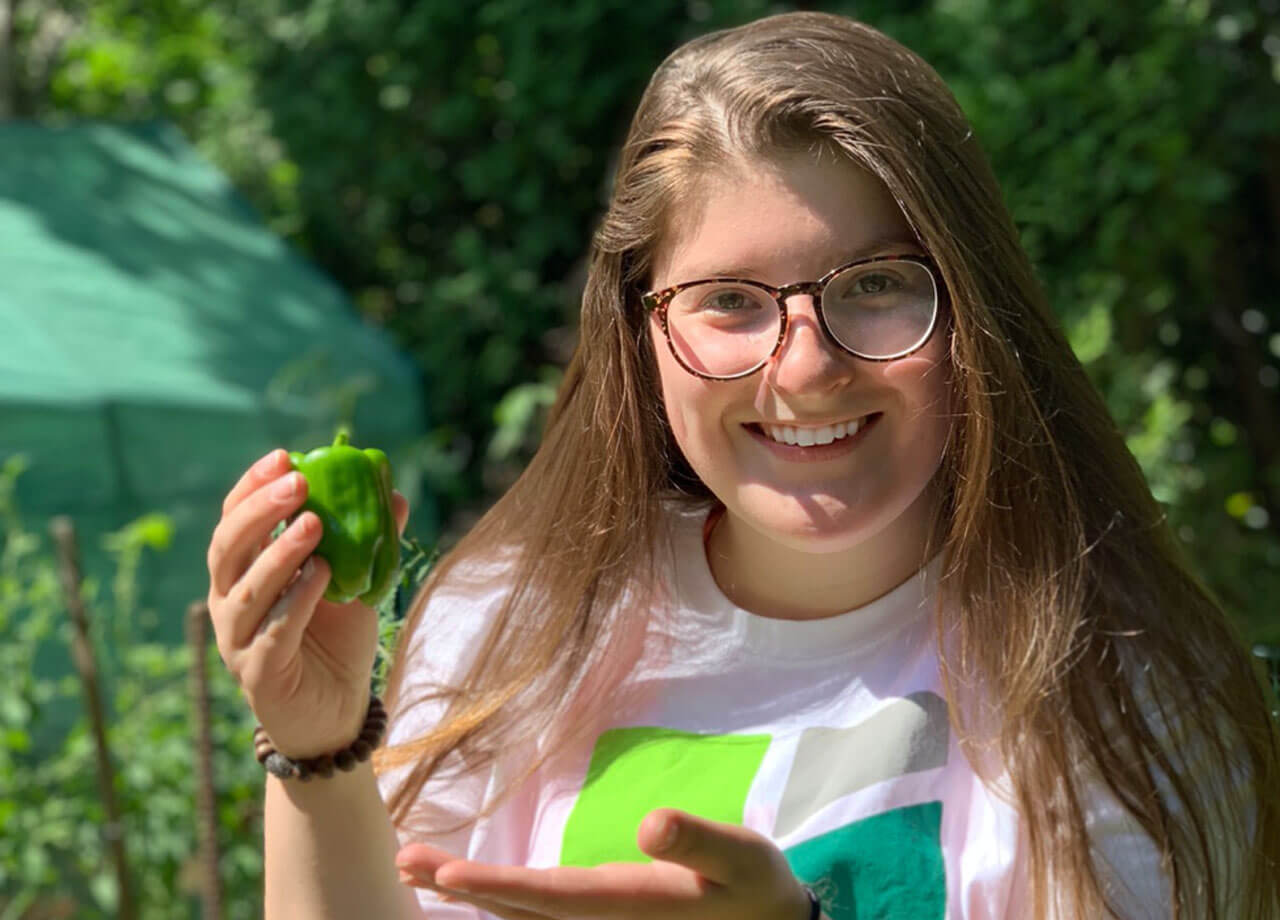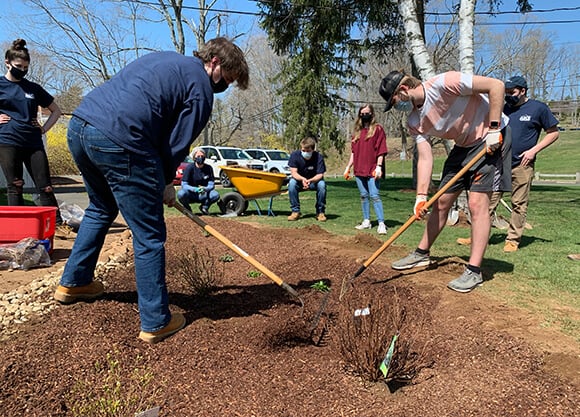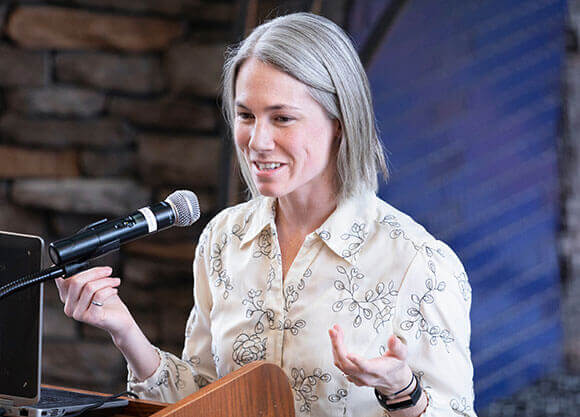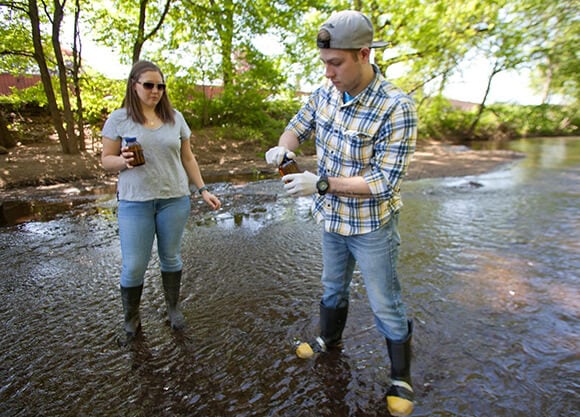The intersection of environmental stewardship and racial justice
Environmental justice is grounded in the belief that all people have the right to a clean and healthy environment, irrespective of race, gender, income, ethnicity or educational level. Ensuring an environment that meets present and future needs inevitably requires adjustments to the social and economic systems that depend upon and impact that environment. Quinnipiac will work to advance ecological learning, living and leading while remaining cognizant of the implications for the social and economic systems in which we are embedded.
Indigenous Recognition
10-Point Plan, Goal 8
Appropriately acknowledge the Indigenous people of the land of this region who are Quinnipiac’s namesake.
Progress and efforts reported in Fall 2023, since the 2022 report:
-
The annual Indigeneity Teach-In was held November 3, co-sponsored by the Albert Schweitzer Institute (ASI) and the Indigenous Student Union (ISU).
-
With the Office of Financial Aid, we are developing a strategy for an Indigenous student–focused scholarship.
-
We continue to work on the Indigeneity Initiative:
-
Curating an annual exhibit at the Arnold Bernhard
-
Library for Native American Heritage Month and hosting events, guest speakers, film screenings and workshops throughout the year.
-
Adding an FAQ page about the Quinnipiac people to the ASI website.
-
Developing a welcoming statement and engagement workshop that will be used during Welcome Weekend with students new to the university for Fall 2023.
Progress and efforts reported in Spring 2022, since the 2021 report:
-
The annual Indigeneity Teach-In was held November 9 and co-sponsored by the Albert Schweitzer Institute and the Indigenous Student Union.
-
In partnership with the Office of Financial Aid, we are developing a strategy for an Indigenous student–focused scholarship.
-
We continue to work on the Indigeneity Initiative. We are in the process of finalizing scholarships, a Quinnipiac naming history and research on the descendants of the Quinnipiac.
Progress since the 2021 report:
-
The annual Indigeneity Teach-In was held Nov. 9 and co-sponsored by the Albert Schweitzer Institute and the Indigenous Student Union.
-
In partnership with the Office of Financial Aid, we are developing a strategy for an Indigenous student–focused scholarship.
-
We continue to work on the Indigeneity Initiative. We are in the process of finalizing scholarships, a Quinnipiac naming history and research on the descendants of the Quinnipiac.
Read the full 10-Point Plan
Wellness
There are plenty of activities to do around Quinnipiac to maintain your physical and mental wellness. Here are some ideas to get you started.
Located right in our backyard, Sleeping Giant State Park offers the perfect environment to go for a hike and clear your mind. With over 30 miles of trails to explore, the Giant is a much-loved spot for students to get their bodies moving and connect with nature.
Quinnipiac's newly renovated Recreation and Wellness Center provides students with access to resources for the body and the mind. Equipped with a rock-climbing wall, recreational space and equipment, and a fuel bar for pre- and post-workouts, the Recreation and Wellness Center has everything you need to help maintain a healthy lifestyle. Inside, students can also find the counseling center, dedicated to supporting the intellectual, emotional and social development of students.
3
Pollinator Garden at the Albert Schweitzer Institute
The pollinator garden at the Albert Schweitzer Institute has several native plant species to provide nectar and pollen to a wide range of pollinator species. In addition to helping fight the declining population of pollinators, it has been proven that spending time around flowers can help reduce stress and improve emotional health.
Questions or comments
We'd love to hear your feedback or suggestions. Contact us at qusustainability@qu.edu


